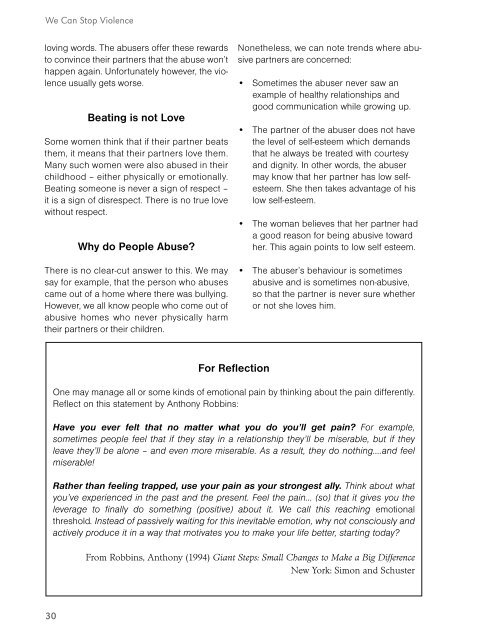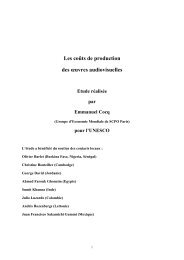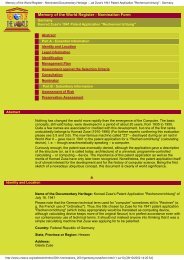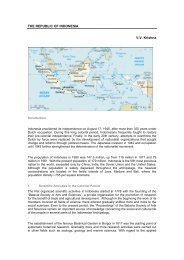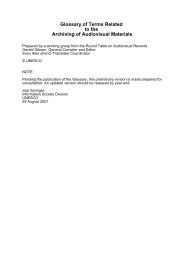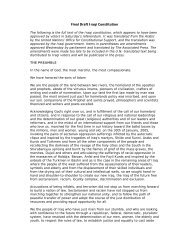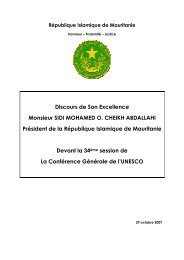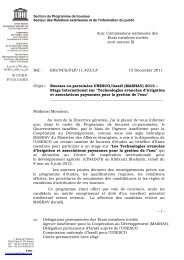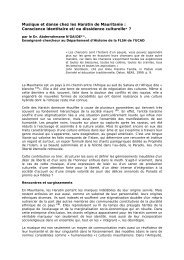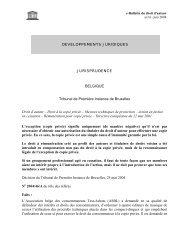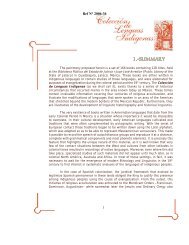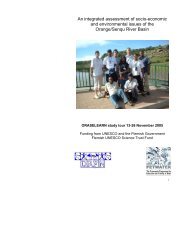Stop Violence workbook 1 - Unesco
Stop Violence workbook 1 - Unesco
Stop Violence workbook 1 - Unesco
Create successful ePaper yourself
Turn your PDF publications into a flip-book with our unique Google optimized e-Paper software.
We Can <strong>Stop</strong> <strong>Violence</strong><br />
loving words. The abusers offer these rewards<br />
to convince their partners that the abuse won’t<br />
happen again. Unfortunately however, the violence<br />
usually gets worse.<br />
Beating is not Love<br />
Some women think that if their partner beats<br />
them, it means that their partners love them.<br />
Many such women were also abused in their<br />
childhood – either physically or emotionally.<br />
Beating someone is never a sign of respect –<br />
it is a sign of disrespect. There is no true love<br />
without respect.<br />
Why do People Abuse?<br />
There is no clear-cut answer to this. We may<br />
say for example, that the person who abuses<br />
came out of a home where there was bullying.<br />
However, we all know people who come out of<br />
abusive homes who never physically harm<br />
their partners or their children.<br />
Nonetheless, we can note trends where abusive<br />
partners are concerned:<br />
• Sometimes the abuser never saw an<br />
example of healthy relationships and<br />
good communication while growing up.<br />
• The partner of the abuser does not have<br />
the level of self-esteem which demands<br />
that he always be treated with courtesy<br />
and dignity. In other words, the abuser<br />
may know that her partner has low selfesteem.<br />
She then takes advantage of his<br />
low self-esteem.<br />
• The woman believes that her partner had<br />
a good reason for being abusive toward<br />
her. This again points to low self esteem.<br />
• The abuser’s behaviour is sometimes<br />
abusive and is sometimes non-abusive,<br />
so that the partner is never sure whether<br />
or not she loves him.<br />
For Reflection<br />
One may manage all or some kinds of emotional pain by thinking about the pain differently.<br />
Reflect on this statement by Anthony Robbins:<br />
Have you ever felt that no matter what you do you’ll get pain? For example,<br />
sometimes people feel that if they stay in a relationship they’ll be miserable, but if they<br />
leave they’ll be alone – and even more miserable. As a result, they do nothing….and feel<br />
miserable!<br />
Rather than feeling trapped, use your pain as your strongest ally. Think about what<br />
you’ve experienced in the past and the present. Feel the pain… (so) that it gives you the<br />
leverage to finally do something (positive) about it. We call this reaching emotional<br />
threshold. Instead of passively waiting for this inevitable emotion, why not consciously and<br />
actively produce it in a way that motivates you to make your life better, starting today?<br />
From Robbins, Anthony (1994) Giant Steps: Small Changes to Make a Big Difference<br />
New York: Simon and Schuster<br />
30


